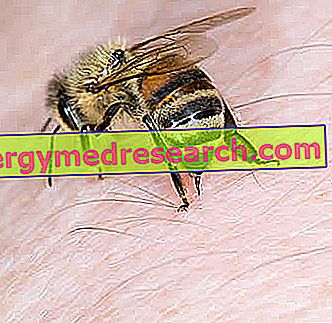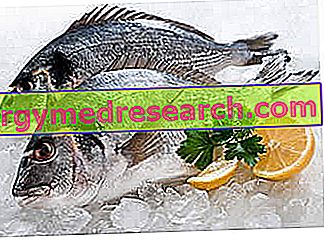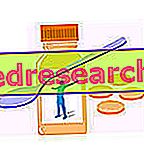Extremely widespread among the world population, the cold is a viral disease that affects the upper airways and - sometimes - the lower ones: we are talking about an extremely contagious disease

What to do
- Absolute rest accelerates recovery from cold
- Cover well before leaving home with scarves and heavy clothing (during the winter months and in the intermediate seasons)
- Avoid temperature changes
- Use room humidifiers, useful for remedying nasal congestion
- Breastfeeding the baby preferably with breast milk, very important for strengthening his immune system
- Fluidize the mucus: in this case, nasal irrigation with saline solutions is particularly indicated
- Make use of the help of nasal vaporizers or humidifiers, useful for favoring the fluidization of the mucus, therefore the release from the stuffy nose
What NOT to do
- Always blow your nose in the same handkerchief: use disposable tissues
- Smoking: smoking, both passive and active, seems to inhibit the immune system, predisposing the subject to infections, including the cold
- Taking antibiotics without a prescription: unless there is a concomitant bacterial infection (eg strep throat streptococcus), the administration of antibiotics against colds is useless, ineffective and superfluous, since the pathogens involved are viruses (and not bacteria!)
- Swallow the mucus
- Sleep a few hours: it is observed that those who sleep a few hours during the night tend to get sick more easily than those who sleep 6-8 hours per night
- Place hands in the mouth and nose
What to eat
- In the presence of colds, it is a good rule to prefer simple, healthy and easily digestible foods
- It is advisable to drink plenty of hot liquids, such as tea, hot milk, broths and soups
- Drink plenty of fluids to avoid dehydration: colds are often accompanied by episodes of diarrhea and vomiting
- It seems that also the habit to consume yogurt with live lactic acid bacteria or in any case probiotics is an excellent remedy for colds, since the immune defenses are strengthened.
- Foods rich in vitamin C also help protect the body from colds
What NOT to Eat
- Drinks containing alcohol: it seems that alcohol can worsen the swelling of the nasal mucosa, which often accompanies the cold
- Coffee and caffeinated beverages: it seems that these foods predispose the patient suffering from cold to dehydration
Natural Cures and Remedies
The fumigation is a particularly effective natural remedy to speed up healing in case of a cold.
The fumigations enriched with essential oils with an expectorant, disinfectant and balsamic action give an immediate perception of comfort after steam inhalation.
- Eucalyptus ( Eucalyptus globulus Labill) → anti-inflammatory, expectorant, balsamic properties
- Mint ( Mentha piperita ) → balsamic, decongestant, anticatarrali properties
- Lemon (Citrus limon) → antiseptic properties
- Bitter orange ( Citrus aurantium L. var. Amara ) → disinfectant, anti-inflammatory, decongestant properties
- Rosemary ( Rosmarinus officinalis ) → balsamic, expectorant, antioxidant properties
Among the other natural remedies for colds we cannot forget the extraordinary therapeutic power obtained from the extracts of some plants, such as:
- Echinacea ( Echinacea angustifolia ) → antiviral, immunostimulant, antibacterial, anti-inflammatory properties (in the form of herbal tea, syrup, tablets)
- Propolis → antimicrobial, antifungal, antiviral activity
- Spruce ( Abies pectinata DC) → anticatarrali and balsamic properties
- Elderberry ( Sambucus nigra ) → diaphoretic and anti-inflammatory properties (in the form of herbal tea or infusion)
- Spirea olmaria → anti-inflammatory and calming properties
- Linden ( Tilia cordata ) → diaphoretic properties, mildly sedative
Pharmacological care
For the treatment of colds, it is not necessarily necessary to take specific drugs: in general, the disease regresses spontaneously in a few days. However, healing can be speeded up by deliberate intake of some medicinal specialties:
- Nasal decongestants: Phenylephrine (eg Isonephrine, Phenyl CL DYN), pseudoephedrine (eg Actifed, Actigrip), Oximetazoline hydrochloride (eg Vicks sinex, Actifed nasal)
- Paracetamol fever-lowering drugs (eg tachypirina, efferalgan), ibuprofen (eg brufen, moment)
- Antitussives: if the cold was also accompanied by coughing. The drugs most commonly used for this purpose are: dextromethorphan (eg Aricodilosse) and bromexine (eg Bisolvon Linctus)
- Vitamin C: questionable the beneficial effect of vitamin C at high doses (2-10 grams die, preferably divided into several doses) for the treatment of colds.
Prevention
- Pay particular attention to hand washing and personal hygiene
- Clean children's toys: children tend to put all objects in their mouths, which could be dirty and contaminated
- Take along specific disinfectant wipes or liquid formulations (eg amuchina)
- If possible, avoid traveling by bus or train with small children, much more subject to viral infections
- Avoid contact with affected individuals as much as possible: even a sneeze or cough is a vehicle for spreading cold viruses
Medical treatments
- In the vast majority of cases, a cold is an infection of simple resolution, which tends to regress spontaneously over a few days; therefore, no specific cold medical treatment is needed.



